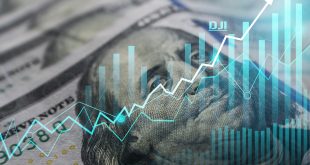Though commodities have been the best-performing asset class for two years, according to Bank of America, experts have warned of market volatility as trading volumes of gold, oil, silver and copper have surged
Retail investors are attracted to commodity trading after two consecutive years of plentiful returns, despite concerns that they could suffer huge losses amid highly volatile markets.
Retail trading volumes in commodity futures and the largest commodity-focused investment funds surged in 2022. But while trading in commodities has proved much better than equities and bonds, some traders and economists do have fears about the volatile market dominated by specialized players.
Daily average trading volumes in CME’s micro contracts for gold, crude oil, silver and copper were up 93 per cent year on year as of the end of November.
Trading volumes in Invesco’s $6bn PDBC ETF, the largest broad-based commodities fund which is popular with retail investors, leaped more than 60 per cent and were almost three times as high as in 2020. Volumes across its broader suite of commodities funds climbed 50 per cent.
Commodities got everyone’s attention last year because people were nervous about inflation. Then, after the invasion of Ukraine, more traders focused on geopolitical risks as well. The burst of trading activity came as the S&P GSCI index of raw materials prices jumped 9 per cent last year as the war in Ukraine restricted supplies, drawing a stark contrast to the more than $30tn in losses for equities and bonds.
Commodities were one of just two asset classes to make gains in 2022 alongside cash. Commodity-focused companies were also the only subsector of the US stock market to advance, with the S&P 500 energy sub-index advancing 54 per cent as of December 21.
However, while full-year returns have been strong, commodity trading remains risky, with markets liable to extreme swings that can catch retail investors off guard. In April 2020, for example, the main US oil contract traded below zero for the first time.
Many retail traders and platforms had not considered the possibility of negative prices, and the retail brokerage IBKR lost $88mn covering margin calls for customers caught out by the price collapse.
Besides the risks for retail traders themselves, traders are also concerned about the impact they could have on other market participants, from airlines to farmers.
Modern indices such as Invesco’s have updated their strategies to avoid some of the problems that afflicted early commodities funds, which sometimes lost money even when prices rose due to quirks in the pricing of futures contracts.

 Noor Trends News, Technical Analysis, Educational Tools and Recommendations
Noor Trends News, Technical Analysis, Educational Tools and Recommendations




